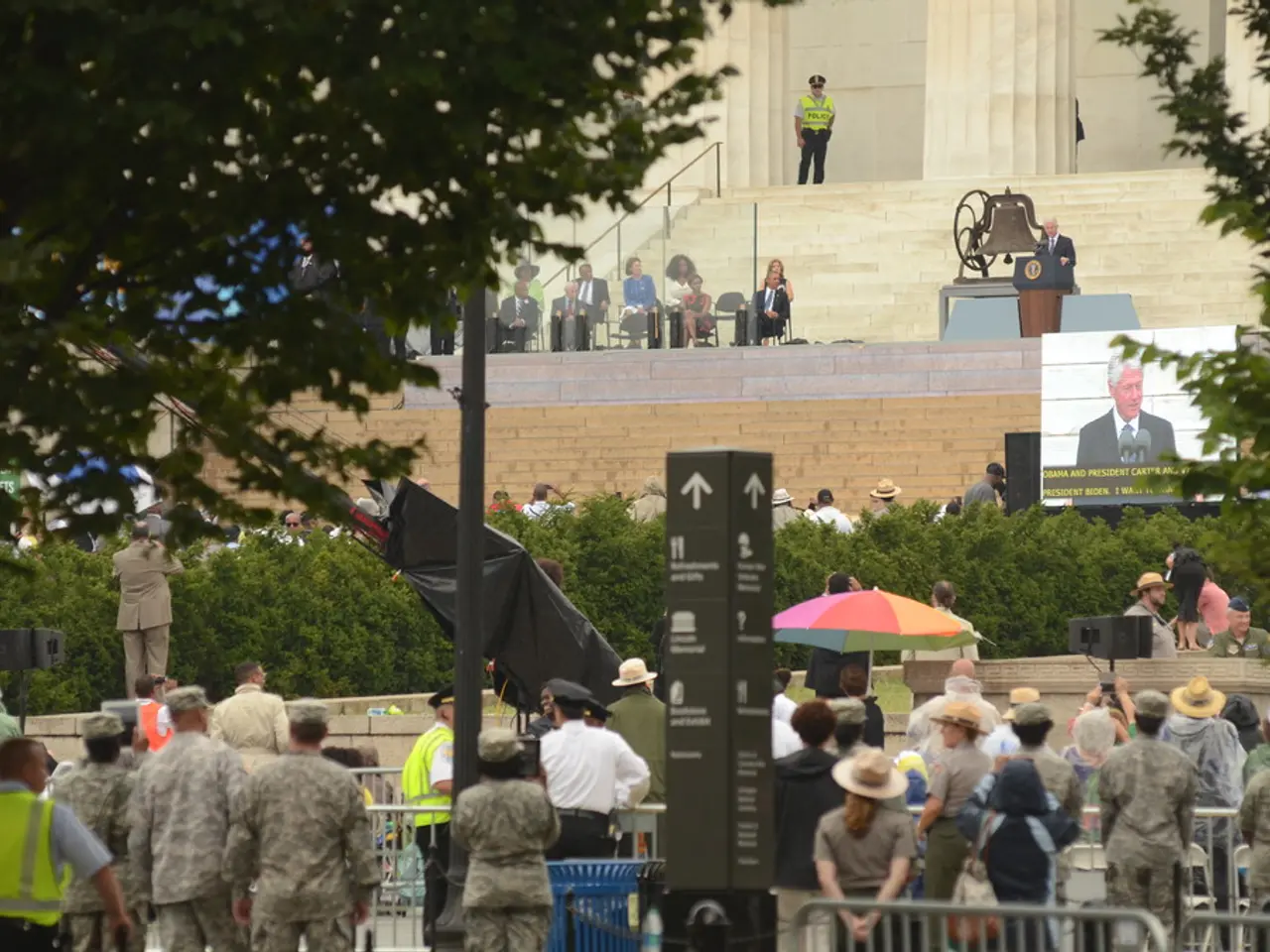The might of Thailand's Constitutional Court sparks controversy once more, as the Prime Minister's suspension fueled questions about its sway over political power.
In the ongoing political landscape of Thailand, the suspension of Prime Minister Paetongtarn Shinawatra by the Constitutional Court has added another layer of complexity to an already tumultuous situation.
The crisis began with the withdrawal of the Bhumjaithai Party from the Pheu Thai-led coalition government, weakening the government's stability. This was followed by increased tensions within the remaining coalition parties and demands for concessions, further destabilising the government.
The suspension of PM Paetongtarn could lead to a challenge in maintaining stability within the government. If she is ultimately removed, it would trigger a vote in the National Assembly to choose a new Prime Minister. If no consensus is reached, the deadlock could persist until a new leader is agreed upon.
One possible outcome is the potential for early elections, potentially two years ahead of schedule. If a majority of lawmakers cannot agree on a new leader but can support a no-confidence vote against the Pheu Thai-led government, this could lead to the dissolution of Parliament and early elections.
The Constitutional Court's actions reflect a pattern of judicial activism in Thai politics. The court has previously ousted Pheu Thai prime ministers and disbanded opposition parties, such as the Move Forward Party, which won the most seats in the 2023 elections. The dissolution of the Move Forward Party not only eliminated a major progressive force but also imposed a ten-year political ban on its leaders.
The suspension of PM Paetongtarn and the dissolution of the Move Forward Party are connected through the broader context of judicial activism and political instability in Thailand. Both events reflect the ongoing struggle between progressive forces and conservative elements, with the judiciary playing a significant role in shaping political outcomes.
The Move Forward Party was dissolved by the Constitutional Court over its push to reform Thailand's royal defamation law. This decision, like the suspension of PM Paetongtarn, is seen as a resurgence of "judicial activism" in Thailand.
Assistant Professor Rawin Leelapatana at Chulalongkorn University's law faculty has stated that the intervention of the Constitutional Court in politics is likely to continue in the future. This prediction is supported by the ongoing case of PM Paetongtarn Shinawatra, which is seen as a new development in the court's role in Thai politics.
The Constitutional Court in Thailand has the potential to intervene in political matters again, as demonstrated by the dissolution of the Move Forward Party. This intervention often aligns with conservative forces and has been seen as a means to control political outcomes.
It is important to note that the suspension of PM Paetongtarn does not change the fact that the Move Forward Party was dissolved by the Constitutional Court. The Move Forward Party won the most seats in the 2023 election, only to be disbanded by the court in 2024.
In conclusion, the suspension of PM Paetongtarn Shinawatra and the dissolution of the Move Forward Party are significant events in the ongoing political crisis in Thailand. They highlight the Constitutional Court's role in shaping the country's political landscape and the ongoing struggle between progressive forces and conservative elements. The future of Thai politics remains uncertain, with the potential for further intervention by the Constitutional Court.
The suspension of Prime Minister Paetongtarn Shinawatra and the dissolution of the Move Forward Party indicate a continued role of the Constitutional Court in policy-and-legislation and general-news, particularly in light of ongoing conflicts between progressive forces and conservative elements in Thai politics. The military could potentially be involved in future political developments if stability within the government remains challenging during this time of complex politics.






